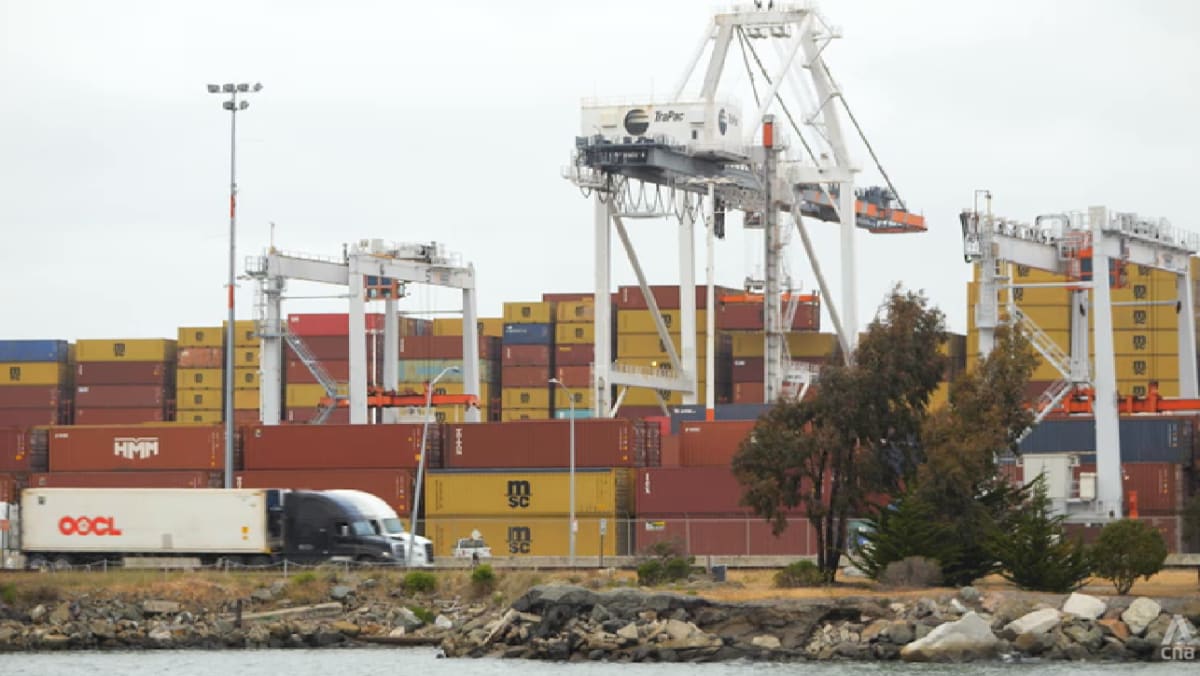GLOBAL MARKET VOLATILITY
The Port of Oakland, for instance, is the first US stop for millions of products arriving from China each year, as well as the last stop for agricultural products from California headed the other direction.
However, industry analysts believe the recent tariffs on goods means a slowdown at the port is almost certain.
“They’ve estimated that cargo volume will drop by about 10 per cent with the current level of tariffs,” said Sean Randolph, senior director of the Bay Area Council Economic Institute.
“That’s a lot for any port, and it has ripples going through the economy.”
At the East Bay Restaurant Supply warehouse near the port, prices for its products have gone up as soon as US President Donald Trump made it clear that tariffs were going to be imposed.
The business sells kitchen goods, many of which are made in China, to restaurants and consumers.
“Since the early part of this year, we’ve been receiving communications from our partners, from our vendors about the increase in prices,” said the firm’s chief financial officer David Wong.
“When they pass down the prices to us, unfortunately, in this industry, we will pass down to the end-consumers.”
Recent data has shown that fewer ships are leaving China for West Coast ports, which adds to market volatility, said observers.
But there is some hope that Trump may be backing down from his tough stance on Beijing, after his comments late last month that the tariffs could “come down substantially”.
In a statement to CNA, the Port of Oakland said it “is closely monitoring the evolving tariff situation which remains uncertain, especially regarding global countermeasures, deals and retaliation”.













